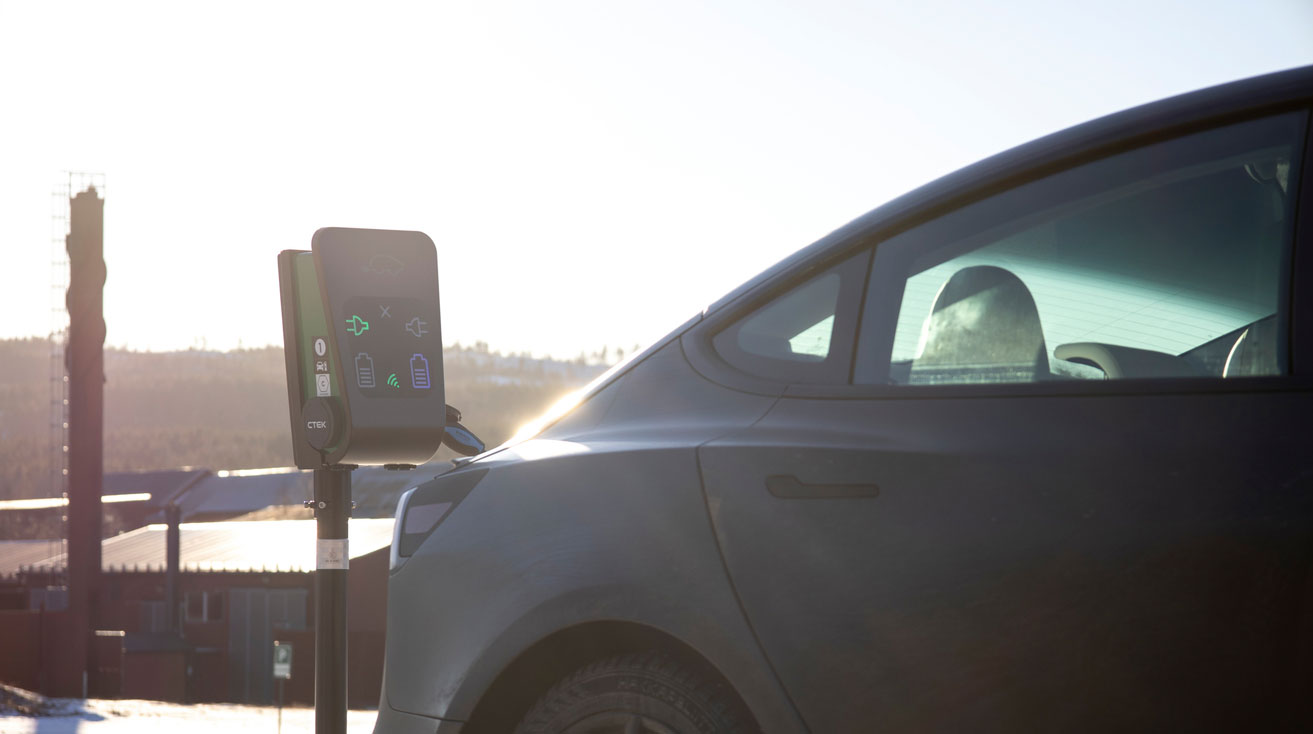e-roaming is a positive driver for EVs and charging
By Cecilia Routledge, Global Director Energy & Facilities for CTEK
Driving an Electric Vehicle (EV) in the UK currently involves a lot of baggage. But it’s not in the boot – it’s on the keyring, in the glove compartment and on your smartphone. A typical EV driver will have a wad of payment cards, a bunch of RFID tags and a smattering of apps each of which enables access to one of the proliferating EV charging brands. It’s a frustrating and time-consuming experience. Pull up at a new (to you) charging point and it’s something of a lottery. If you’re lucky there will be a contactless card reader so you can use your credit or debit card or your phone to tap and charge. If you are less lucky, you either won’t be able to use the charger because you don’t have an RFID tag from that provider or you’ll have to download your umpteenth app, register, set a password, verify your email address, submit payment details…
It doesn’t have to be this way.
e-roaming is one answer. In essence it means an alliance of E-Mobility Service Providers (EMSPs) agreeing that their customers can access each other’s chargers by using a sole customer account. So, one app/card/RFID and one place to keep track of charging sessions and costs. And one charge provider on bank statements. It is here in the UK, but on a limited scale, such as Zap-Map’s Zap-Pay. Across the Channel it is more progressed. The French Gireve network platform enables EV driver access to more than 250,000 charging points. They include 3,942 in the UK. By comparison, the Netherlands has 104,000.
In the EU there is the stick/carrot of the Alternative Fuels Infrastructure Directive (2014/94) which includes a 2027 deadline for EV drivers to be able to choose which app to use to charge, stop and pay at any charging station across the EU. There is a bit of a parallel with mobile phone roaming. If you go to Birmingham, Berlin or Barcelona, your phone will work wherever without hassle or expensive charges. The network service providers communicate and enable roaming behind the scenes. Brexit has complicated this for some EU-UK travellers, certainly in terms of cost but not for automated access.
e-roaming should – and can – provide the same seamless experience for the EV driver. Underpinning e-roaming and other e-mobility advances are OCPP and OCPI – Open Charge Point Protocol and Open Charge Point Interface. OCPP is an open standard which was first developed in 2009. It enables communication between EV charging units and operators’ systems.
OCPI is another protocol that manages communications amongst charge station operators (CPOs) and EMSPs. Think of the CPOs as the ones who physically install the chargers and the EMSPs as the brand the EV driver interacts with. In some cases, the CPO and the EMSP are one and the same, such as Shell. It is OCPI that enables e-roaming.
e-roaming, once it is widespread, will mean the EV driver can whittle down their collection of cards, tags and apps. Maybe even down to one.
Frustrated EV drivers aside for one moment, why does this matter in the big picture of e-mobility, climate and the environment? Charging anxiety was the number one concern in CTEK’s latest YouGov survey of 15,000 people in the UK and four other European countries.
Lack of charging – at home and elsewhere – was also a big reason why non-EV owners have yet to make the switch to electric. Action on charging – to make it plentiful and simple to access – will accelerate us all towards net zero. People are still choosing to buy new petrol and diesel powered cars, with all the associated harm to our air quality today and our climate tomorrow.
The next step will be for the EV itself to be the identifier that gets the current flowing. It’s called plug & charge. Drive up to the charger, plug in, the EV talks to the charger, charging is automatically initiated, and the bill is allocated to the account connected to the EV and its owner. The ability for such communication already exists, within the ISO 15118 standard.
And then there will be no apps and no RFIDs. Which will be a different kind of net zero.

